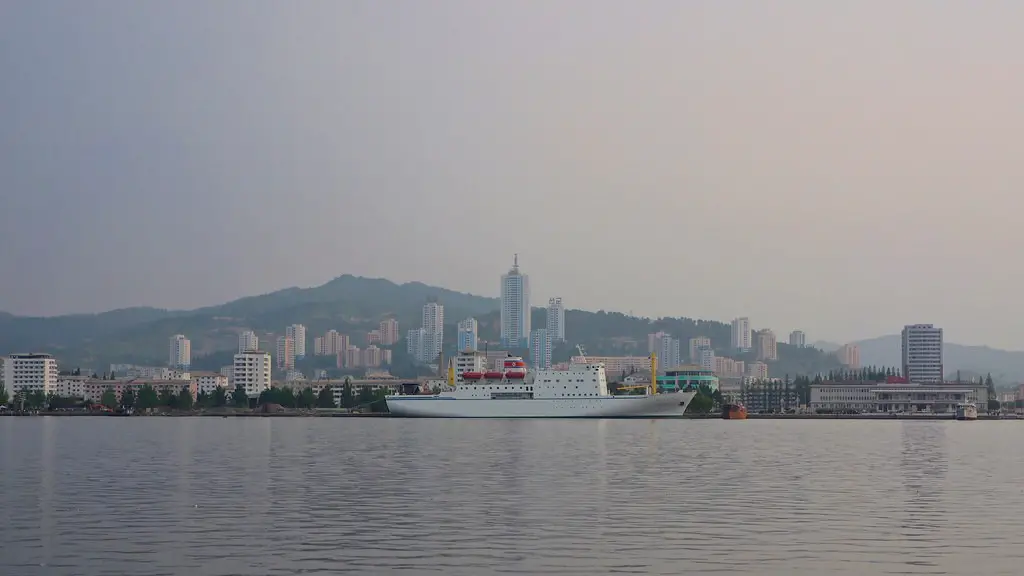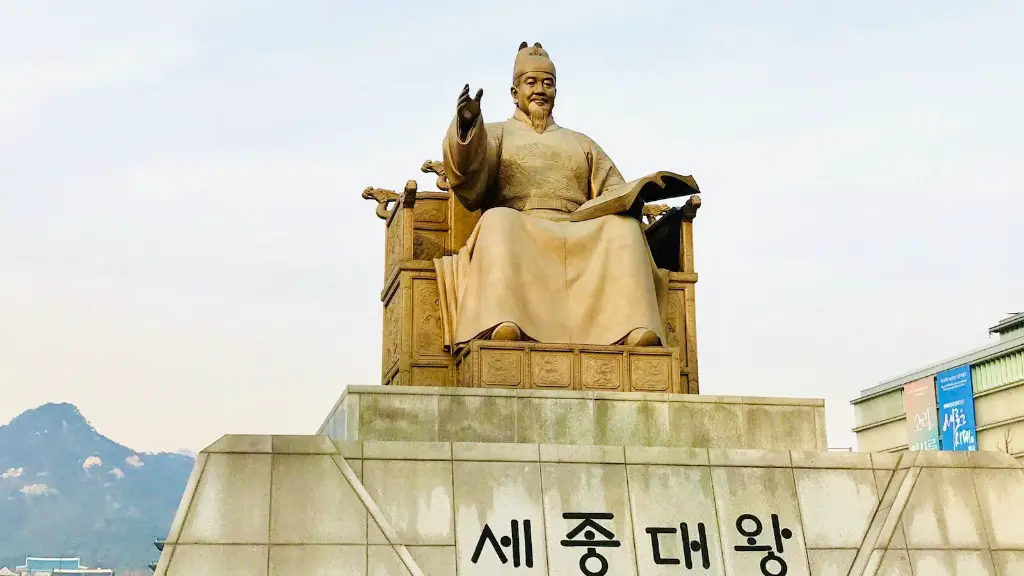Background Information
The cold war between the United States and North Korea has been in the news recently, with the two countries exchanging threats, accusations, and insults. North Korea has been pursuing a nuclear weapons program, and has test-fired several ballistic missiles. President Donald Trump has responded with harsh rhetoric, saying that the United States would respond to North Korean aggression with “fire and fury.” These words have sent shockwaves through the international community. But is a war between the two countries likely?
Analysis of Geopolitical Factors
When assessing whether or not a war between the United States and North Korea is likely, it is important to consider the geopolitical factors at play. Firstly, it is worth noting that North Korea is heavily dependent on its ally, China, for trade, fuel, and other resources. China could likely play a role in the conflict, and would likely oppose any military action taken by the United States. It is also important to consider the economic and political stability of North Korea. Due to its isolationist policies, it has very little in the way of infrastructure and industry, making it difficult to support a war effort.
Furthermore, North Korea’s military capabilities are limited. It has an outdated airforce, and its navy is small and outdated. It also lacks the means to project power outside of its borders. It is uncertain how North Korea would respond to a regional conflict, and it is possible that the regime would collapse before the two sides could go to war.
Opinion of Military Analysts
Many military analysts believe that a war between the United States and North Korea is unlikely. They note that the United States has far superior firepower and resources, giving it a distinct advantage in any military conflict. Furthermore, they point out that the United States is capable of conducting an air campaign and utilizing precision-guided missiles to target North Korean military installations, which would likely secure a swift victory.
Analysts also note that North Korea is at a significant disadvantage in terms of its economy and infrastructure, making it difficult for the regime to sustain a long-term war effort. In addition, analysts believe that the North Korean regime would likely collapse if it was subject to a prolonged bombardment by the United States and its allies.
Opinion of Political Analysts
Political analysts also believe that a war between the United States and North Korea is unlikely. They note that the North Korean regime understands the enormous cost of a conflict, and is unlikely to initiate one unless it feels it has no other choice. They point out that North Korea is heavily dependent upon its ally, China, and that any conflict would likely draw China into the fray.
Political analysts also note that South Korea has adopted a more conciliatory approach towards North Korea, opening up the possibility of establishing diplomatic ties between the two countries. Furthermore, they point out that North Korea is politically isolated, and its only ally is China, which is unlikely to come to its aid in a regional conflict.
Opinion of Economists
Economists believe that a war between the United States and North Korea is unlikely. They point out that North Korea relies heavily on its ally, China, for its economic survival, and a conflict would likely alienate China and make it difficult for North Korea to acquire the necessary resources to sustain a war effort.
Economists also note that North Korea’s economy is weak and its infrastructure is limited, making it difficult for the regime to sustain a military conflict. In addition, economists point out that a war would likely lead to an economic collapse in North Korea, making it even more difficult for the regime to sustain a long-term war effort.
Uncertainty of Conflict
Given the uncertainty of the situation, it is difficult to say with certainty whether or not a war between the United States and North Korea is likely. The United States has the overwhelming military advantage, and its economy and infrastructure are superior to that of North Korea.
At the same time, it is important to note that North Korea is heavily reliant on its ally, China, for its economic survival, and a conflict could draw China into the fray. Additionally, North Korea is politically isolated and its economy is weak, making it difficult for the regime to sustain a war effort.
Given these factors, it is doubtful that North Korea will initiate a conflict, and it is possible that a conflict could be averted if the international community can find a diplomatic solution to the crisis.
Role of the United Nations
The United Nations has come out in favor of a diplomatic solution to the conflict, and has urged both sides to engage in dialogue. It has also offered to mediate any negotiations between North Korea and the United States.
The United Nations has also called for an immediate end to provocative rhetoric, and for the international community to work together to find a peaceful resolution to the conflict. Furthermore, the United Nations has emphasized the need for a political solution to the crisis, rather than a military one.
The Impact of Sanctions
The United Nations has also imposed stiff economic sanctions on North Korea, in an effort to pressure the regime into abandoning its nuclear program. These sanctions have had a significant impact on the country’s economy, and have crippled the regime’s ability to sustain a war effort.
Furthermore, the sanctions have isolated North Korea even further, making it increasingly difficult for the regime to acquire resources or technology necessary to sustain a conflict. Additionally, the sanctions have dampened the North Korean regime’s appetite for conflict, as it is aware that a war would be economically and politically costly.
A Nuclear North Korea
North Korea claims to have reached a “breakthrough” in its nuclear weapons program, but the veracity of these claims is still uncertain. It is possible that North Korea may in fact possess the technology to develop and deploy nuclear weapons, but the international community is still in the dark with regard to its capabilities.
Additionally, it is unclear whether or not North Korea would be willing to use its nuclear weapons, as it is aware of the consequences of such an action. Furthermore, if North Korea does have the capability to develop and launch nuclear weapons, it is likely that the United States would take swift and decisive military action in response.
International Community Response
The international community has put forth a united front in opposition to North Korea’s nuclear ambitions, with the United Nations leading the charge. The United Nations has imposed a series of tough economic sanctions on North Korea, and has also called for an immediate end to provocative rhetoric.
In addition, the international community has called upon the United States and North Korea to enter into negotiations to find a diplomatic solution to the crisis. Furthermore, the international community has offered support to both sides in the form of resources, aid, and humanitarian assistance.
Economic Implications
The economic implications of a potential war between the United States and North Korea are potentially huge. A conflict would likely involve huge expenditures by both sides, as well as by its allies. Additionally, there would likely be significant economic costs in the form of lost trade and disrupted global supply chains.
Furthermore, a war would likely have a negative impact on global financial markets and could result in a recession in both countries. Finally, there are environmental implications to consider, as a conflict would likely result in large-scale destruction and the release of pollutants into the atmosphere.
U.S.-North Korean Relations
The United States and North Korea have a complex relationship, one that has aged, evolved, and shifted multiple times since the end of the Korean War. Currently, the two countries are locked in a tense stand-off, with both sides exchanging verbal and military threats.
The United States has attempted to further isolate North Korea diplomatically and economically, while North Korea has pursued a nuclear weapons program and conducted a series of provocative missile tests. It is unclear how this stand-off will end, and it is uncertain whether or not a war between the two nations is likely.



